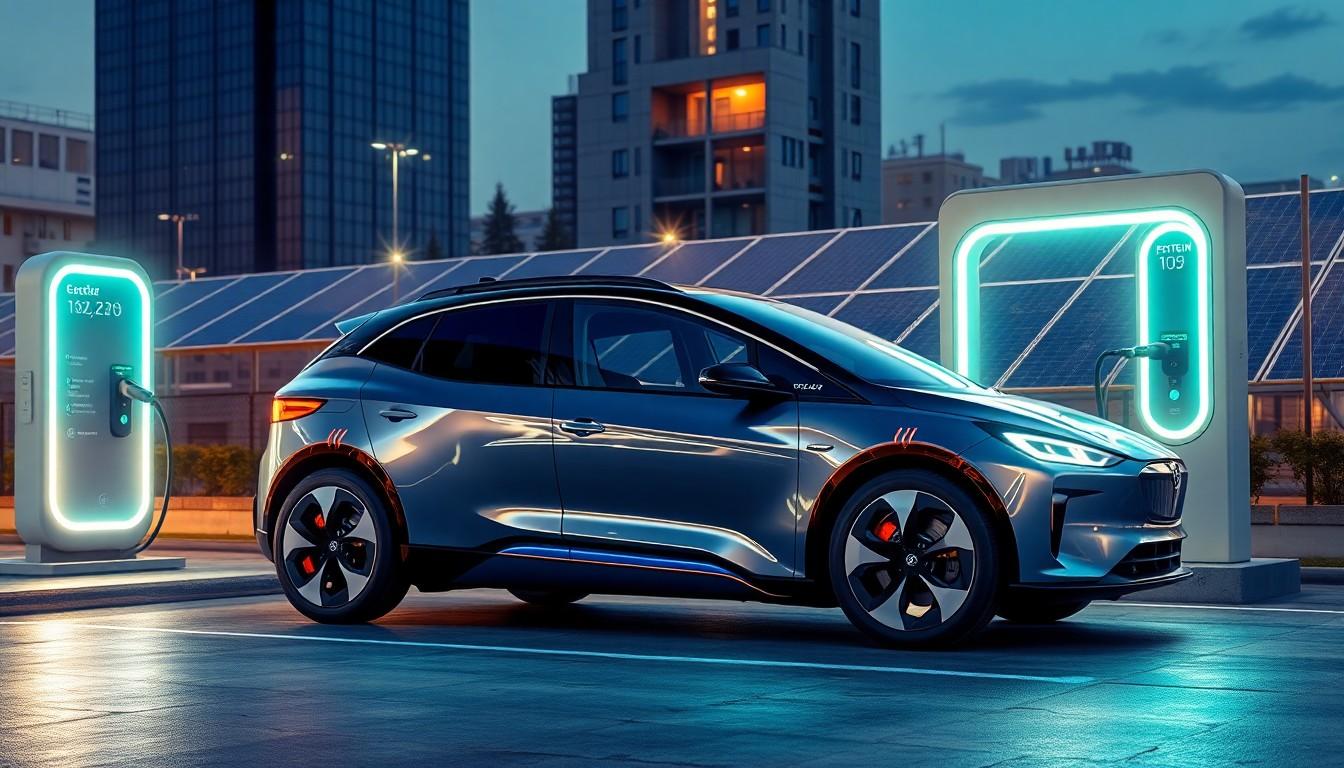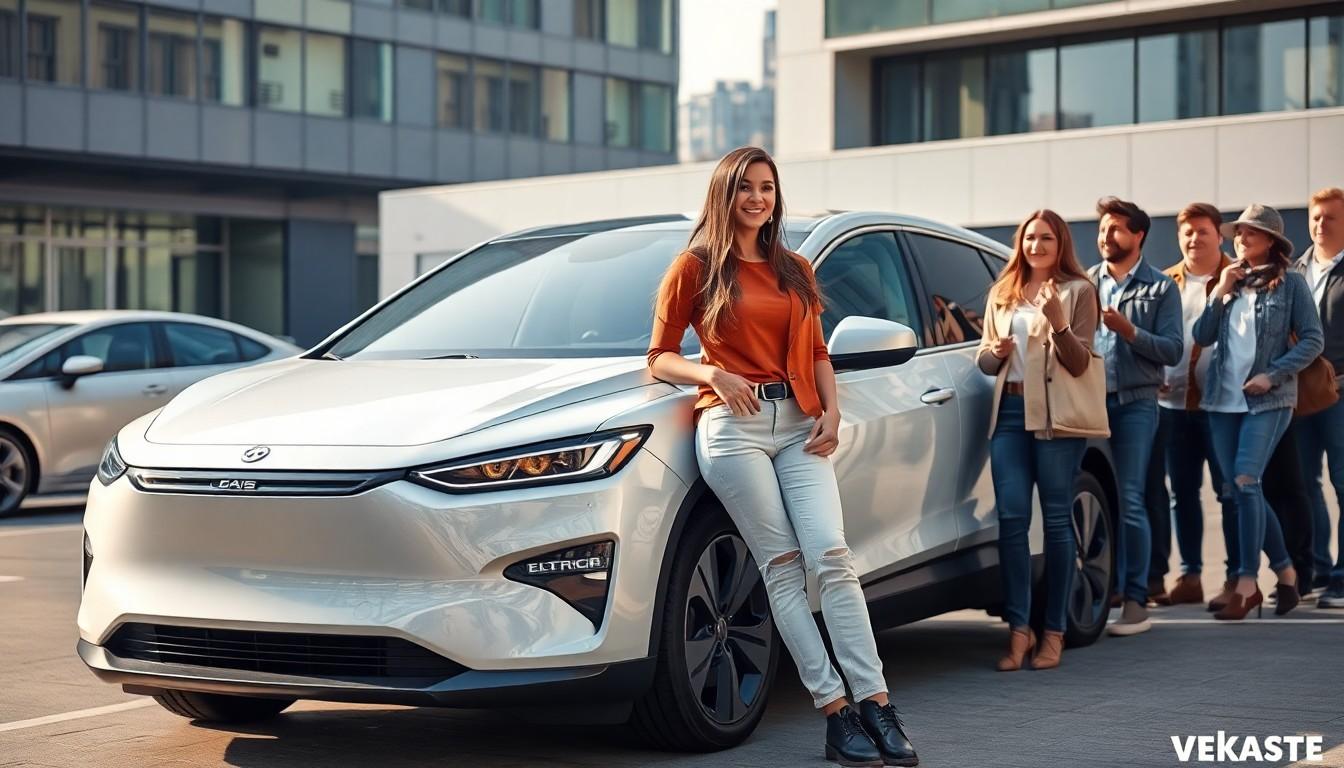The auto industry is revving up for a wild ride, and the latest trends are more exciting than a joyride in a brand-new sports car. From electric vehicles zooming past gas guzzlers to smart tech that practically drives itself, it’s clear that the future of driving is here, and it’s got some serious flair.
Emerging Auto Trends
Emerging trends in the auto industry focus on electric vehicle adoption and technological innovation. Electric vehicles feature prominently due to growing environmental concerns and economic incentives. Manufacturers prioritize reducing carbon footprints and enhancing fuel efficiency.
Autonomous driving technology gains momentum with improvements in sensors and software. Vehicle manufacturers invest significantly in research and development to create safer, more reliable systems. Innovations in artificial intelligence drive progress in this area, contributing to increased consumer interest.
Connected cars offer advanced connectivity and convenience features. These vehicles integrate with smartphones, allowing drivers to access essential apps easily. Enhanced infotainment systems improve the driving experience by providing real-time navigation and entertainment options.
Sustainability practices also shape manufacturing processes. Brands adopt eco-friendly materials and focus on recyclable components. These approaches resonate with a market increasingly concerned about environmental impact.
Mobility solutions evolve alongside trends, emphasizing shared transportation options. Car-sharing platforms expand, meeting urban demands and reducing congestion. This shift in consumer behavior influences vehicle design and functionality.
Additionally, innovative battery technology facilitates longer ranges for electric vehicles. Improvements in charging infrastructure support this growth, making electric vehicle ownership more feasible. The emphasis on faster charging times enhances user convenience.
The auto industry evolves rapidly, driven by electric vehicles, technological advancements, and sustainable practices. Stakeholders must embrace these changes to thrive in a competitive market.
Technological Innovations

Technological innovations in the auto industry reflect a commitment to transformation and sustainability. Significant advancements enhance both performance and driving experiences.
Electric Vehicles
Electric vehicles (EVs) gain popularity due to environmental awareness and economic benefits. Accumulating evidence shows that consumers prefer brands prioritizing low emissions. Many manufacturers are investing in increased range and efficient battery systems. Research by Deloitte indicates that EV sales in the US may reach 31% of total auto sales by 2030. Charging infrastructure has also become essential, with expansions allowing easier access to fast charging stations. Brands like Tesla lead in battery development, enhancing market competition.
Autonomous Driving
Autonomous driving technology leads the market with its potential to revolutionize transportation. Companies integrate sophisticated sensors and artificial intelligence to enhance safety and navigation. National Highway Traffic Safety Administration statistics show that automation can reduce accidents caused by human error. Further advancement in regulatory frameworks will likely accelerate adoption rates. Real-world testing continues to provide critical data to refine algorithms and systems. Innovations from firms like Waymo and Cruise are setting benchmarks in the industry.
Consumer Preferences
Shifts in consumer preferences reflect a growing focus on sustainability and connectivity within the automotive industry.
Shift Towards Sustainability
Sustainability stands at the forefront of consumer priorities in automotive purchases. Many buyers now prefer electric vehicles, with environmental concerns driving the increase in demand. Research indicates that EV sales in the US could constitute 31% of total auto sales by 2030. Brands are responding by adopting eco-friendly materials and implementing recyclable components in their manufacturing processes. Consumer awareness is fostering a collaborative effort among automakers to prioritize reduced carbon footprints and enhanced fuel efficiency.
Demand for Connectivity
Consumers increasingly demand advanced connectivity features in their vehicles. The integration of smartphones with cars allows access to apps and enhances infotainment systems. Features such as real-time traffic updates and seamless navigation attract tech-savvy buyers. Connected car technology emphasizes convenience and improves overall driving experiences. Automakers invest in innovative features that ensure drivers remain linked to their digital lives while on the road. Enhanced connectivity not only satisfies consumer preferences but also shapes modern vehicle design.
Industry Impacts
Emerging auto trends significantly impact the industry landscape, prompting manufacturers and regulators to adapt swiftly.
Manufacturer Adaptations
Manufacturers increasingly prioritize electric vehicle production, with 31% of total auto sales projected to come from EVs by 2030. Attention shifts to innovative battery technology and sustainable materials, leading brands to enhance environmental credentials. Companies like Ford and GM invest heavily in EV platforms, responding to consumer demand for greener options. Enhanced connectivity features attract buyers, prompting automakers to integrate advanced infotainment systems into new models. Collaborations with tech firms lead to the development of autonomous driving solutions, showcasing a commitment to safety and innovation.
Regulatory Changes
Regulatory bodies implement new frameworks that facilitate EV adoption and support autonomous technology deployment. The National Highway Traffic Safety Administration promotes guidelines emphasizing safety while advancing automation technologies. California’s Clean Air Act sets ambitious targets for zero-emission vehicles, pushing manufacturers towards sustainable practices. Tax incentives for electric vehicle purchasers spur market growth and stimulate further investments in charging infrastructure. Legislators prioritize eco-friendly initiatives, demonstrating collaboration between government and industry to tackle environmental challenges.
Future Outlook
Electric vehicles will continue to dominate the auto industry as manufacturers focus more on sustainability. Projections show that EV sales in the US may account for 31% of all auto sales by 2030. Key players like Ford and GM invest significantly in electric vehicle platforms, enhancing production capabilities to meet consumer demand.
Autonomous driving technology is also poised for rapid growth. Real-world testing by companies like Waymo and Cruise sets the stage for innovation in safety and reliability. Increased automation represents a profound change in reducing accidents caused by human error, which the National Highway Traffic Safety Administration supports through updated regulatory frameworks.
Connectivity in vehicles is gaining traction, integrating advanced features that improve user experiences. Connected cars offer seamless smartphone integration, providing real-time access to apps and enhanced infotainment systems. The demand for such connectivity increases as consumers become more reliant on technology in their daily lives.
Sustainability practices shape manufacturing processes, with a shift toward eco-friendly materials. Automakers embrace recyclable components, reflecting consumer preferences for environmentally responsible options. As these trends gain momentum, the focus on reducing carbon footprints grows stronger.
Mobility solutions evolve with the rise of car-sharing platforms, addressing urban transportation issues. Innovations in battery tech are making electric vehicle ownership practical, emphasizing longer ranges and faster charging capabilities. The collaborative efforts between governments and industries, including tax incentives and charging infrastructure investments, bolster this movement toward greener transportation.
Rapid evolutionary changes in the auto industry signal a transformation driven by the convergence of technology and sustainability. Stakeholders, including manufacturers, regulators, and consumers, must adapt swiftly to thrive in this competitive market landscape.
sustainable and connected world
The auto industry stands at a pivotal moment marked by innovation and sustainability. As electric vehicles gain traction and technology continues to advance, manufacturers are reshaping their strategies to meet evolving consumer demands. The emphasis on eco-friendly practices and connectivity is not just a trend but a fundamental shift in how vehicles are designed and utilized.
With significant investments in battery technology and autonomous driving, the future looks bright for both manufacturers and consumers. As these trends unfold, the industry must remain agile to capitalize on the opportunities presented. Those who embrace these changes will not only enhance their market position but also contribute to a more sustainable and connected world.

